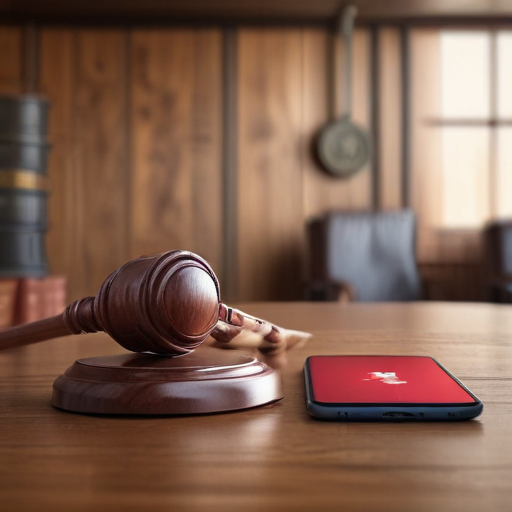The Supreme Court is set to hear a pivotal case regarding a law that could lead to the banning of TikTok in the United States. This case, with oral arguments scheduled for Friday, will feature presentations from attorneys representing TikTok, its users, and the Biden administration. Given the urgency of the matter, a preliminary ruling could be made within days.
The law under consideration, which was passed with broad bipartisan support, mandates that TikTok’s Chinese parent company, ByteDance, divest its ownership by January 19, coinciding with the upcoming presidential transition. If no sale is completed, TikTok—which has grown to serve approximately 170 million users in the U.S.—could be shut down.
In challenging the law, TikTok and a group of individual users argue that the measure infringes upon their First Amendment rights, which protect free speech. The government, however, defends the law primarily on national security grounds, expressing concerns about potential influence from the Chinese government via user data access and content manipulation.
The legal battle is complicated by the political history surrounding TikTok. Although the law received bipartisan support and was signed by President Biden, former President Donald Trump had previously threatened to ban the app during his tenure, only to later exhibit support for it, citing his own significant presence on the platform.
Trump’s unusual intervention in this case includes a request for the Supreme Court to temporarily block the law to facilitate a political resolution once he resumes office. The law includes a provision allowing a one-time 90-day extension if significant progress towards divestiture can be demonstrated, although there are currently no public indications that a sale is imminent.
A previous ruling by the U.S. Court of Appeals for the District of Columbia upheld the law, affirming that it significantly serves national security interests while conforming to First Amendment requirements. TikTok’s legal team contends that Congress should explore options that could address national security without curtailing free speech.
Adding further support for TikTok in this legal struggle are various public interest groups across the political spectrum, including the American Civil Liberties Union and the Cato Institute, who argue against potential suppression of free speech.
In defending the law, Solicitor General Elizabeth Prelogar has asserted that it does not impose restrictions on free speech, but rather seeks to prevent foreign influence over a platform managing vast amounts of sensitive American data.
Overall, as this case unfolds, it represents a significant intersection of technology, national security, and civil liberties, with implications that could set important precedents for how social media is regulated in America. The outcome remains to be seen but may reflect the balance between safeguarding national interests and upholding individuals’ rights to free expression online.
